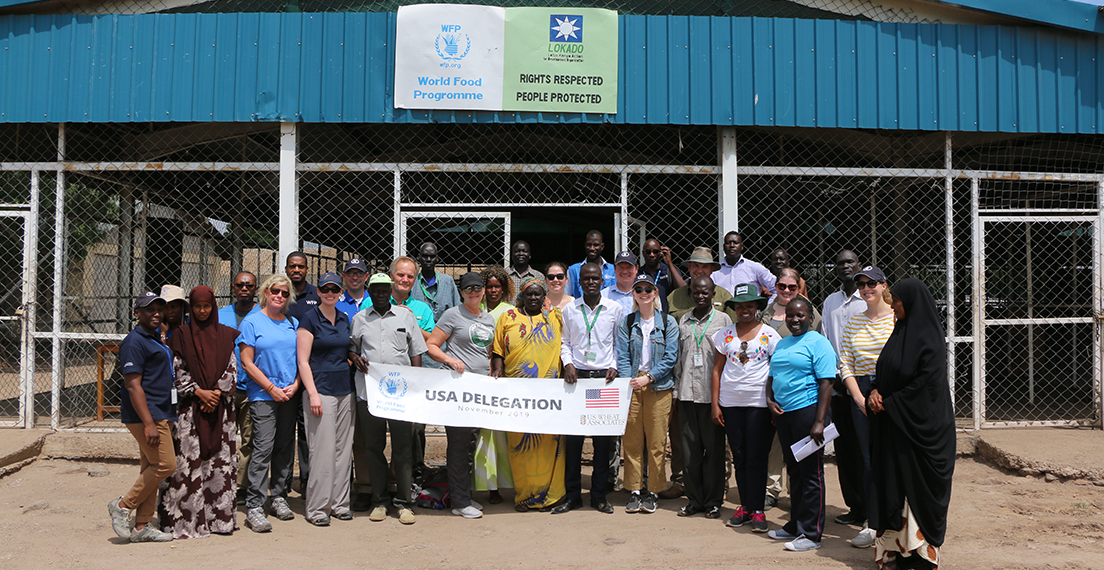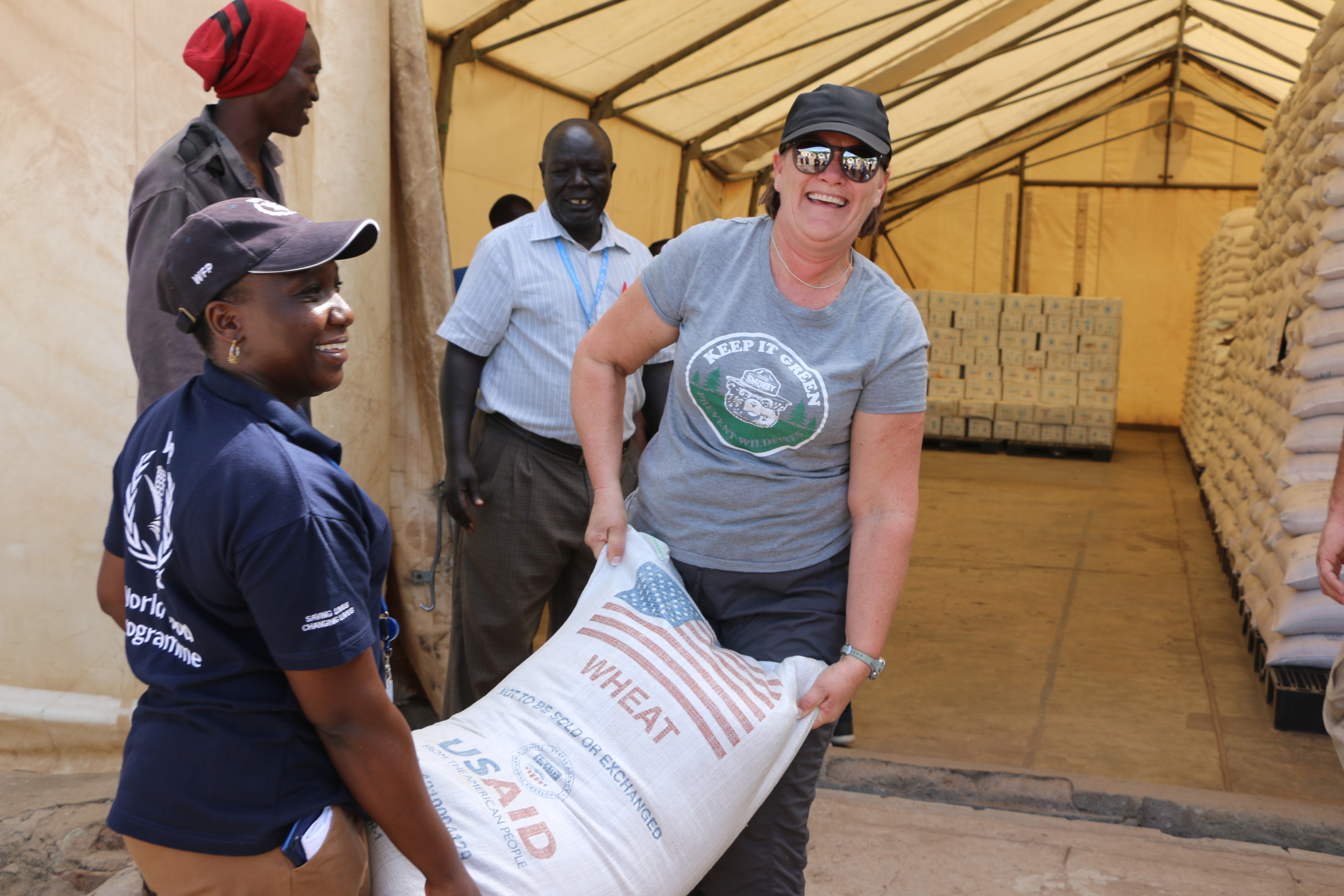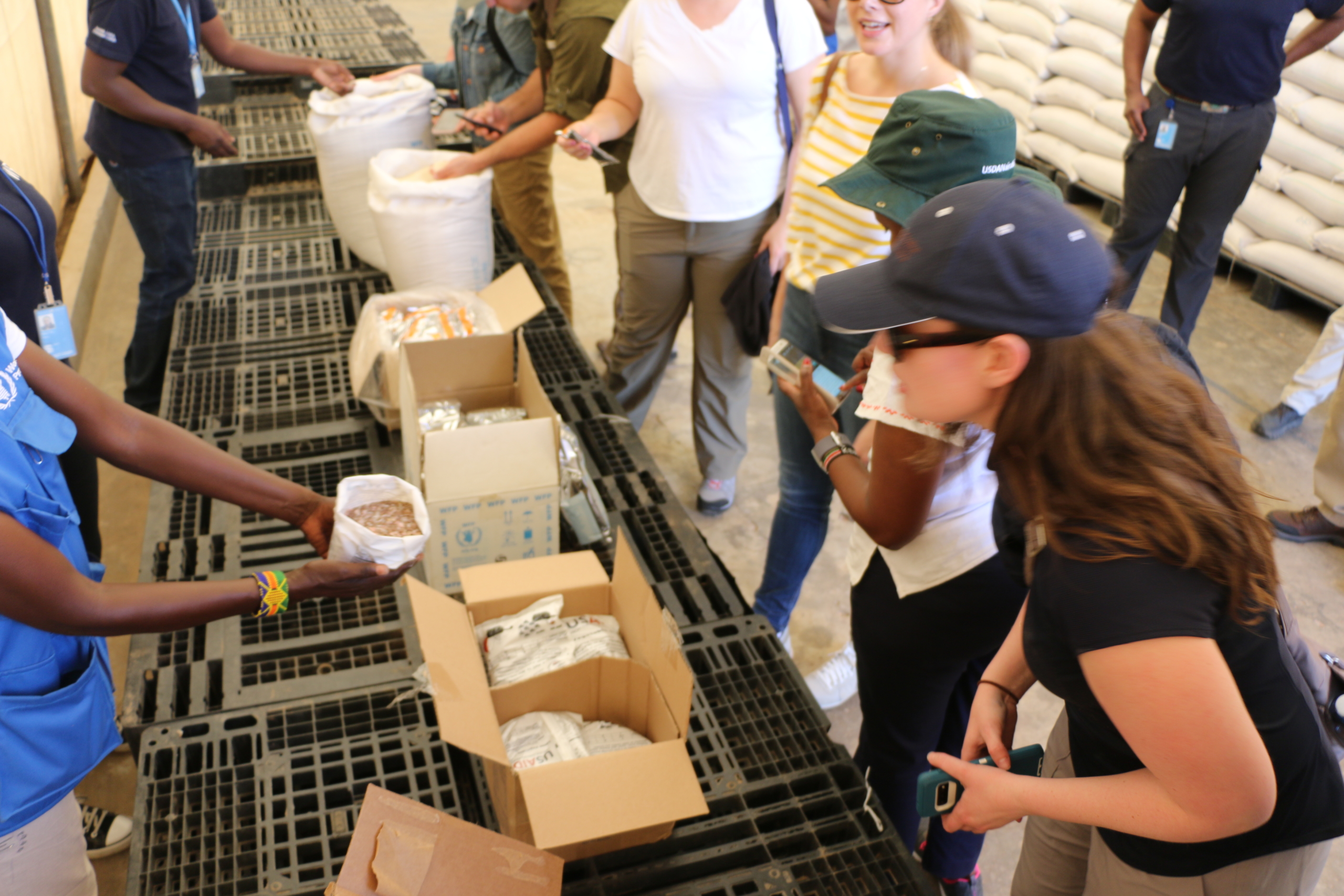Wheat, Sorghum and Rice Growers Observe the Value of Food Aid Programs in East Africa
By Elizabeth Westendorf, USW Assistant Director of Policy
Of the more than 1.9 million metric tons (MMT) of international food commodities the United States donated in 2018/19, more than 800,000 MT of it was high-quality milling wheat. Given the important role U.S. agriculture plays in supporting the neediest people around the world, farmers representing U.S. Wheat Associates (USW), the National Association of Wheat Growers (NAWG), U.S. Grains Council (USGC), and USA Rice spent 14 days in Kenya and Tanzania in November to see how donation programs help improve lives.
The team, funded by USDA’s Foreign Agricultural Service export market development programs, consisted of: Nicole Berg, NAWG Treasurer and a wheat farmer in Washington state; Denise Conover, Director of the Montana Wheat and Barley Committee and a wheat farmer in Montana; Tim Gertson, USA Rice member and a rice farmer in Texas; Linsey Ogden, Washington representative for the National Sorghum Producers; Adam Schindler, USGC representative and sorghum farmer in South Dakota; Jeffery Sylvester, USA Rice board member and a rice farmer in Louisiana; Jesica Kincaid, USA Rice Manager of International Policy; Molly O’Connor, NAWG Trade Policy Advisor ; Katy Wyatt, USGC Manager of Global Strategies; and Elizabeth Westendorf, USW Assistant Director of Policy.
One of the most impactful days for this unique team was a visit to the Kakuma Refugee Camp in Kenya with the World Food Programme (WFP). Some of the more than 200,000 camp residents from nine different countries have lived there for 20 years or more. In partnership with USAID, WFP is feeding 98 percent of the camp with more than half of their food supplies coming from the United States.
When the team met with the refugee-led Food Distribution Committee in the camp, its chairman, a man named Nelson, emphasized that they were always very happy with the high quality of U.S. food they received and, specifically, the excellent quality of wheat flour. The wheat is delivered to the camp in bags and refugees are given a stipend to assist with the milling cost. This is more efficient than transporting flour and helps support the local milling industry.
An important part of programs like WFP’s work in Kakuma is logistics. To gain a better understanding of that side of the work, the team also visited WFP’s office in Mombasa, Kenya, which is one of the largest ports in Africa. From its base in Mombasa, WFP supports feeding programs in Sudan, South Sudan, Mozambique, Rwanda, and Uganda. WFP has been working in Mombasa for 30 years and regularly receives U.S. food shipments.
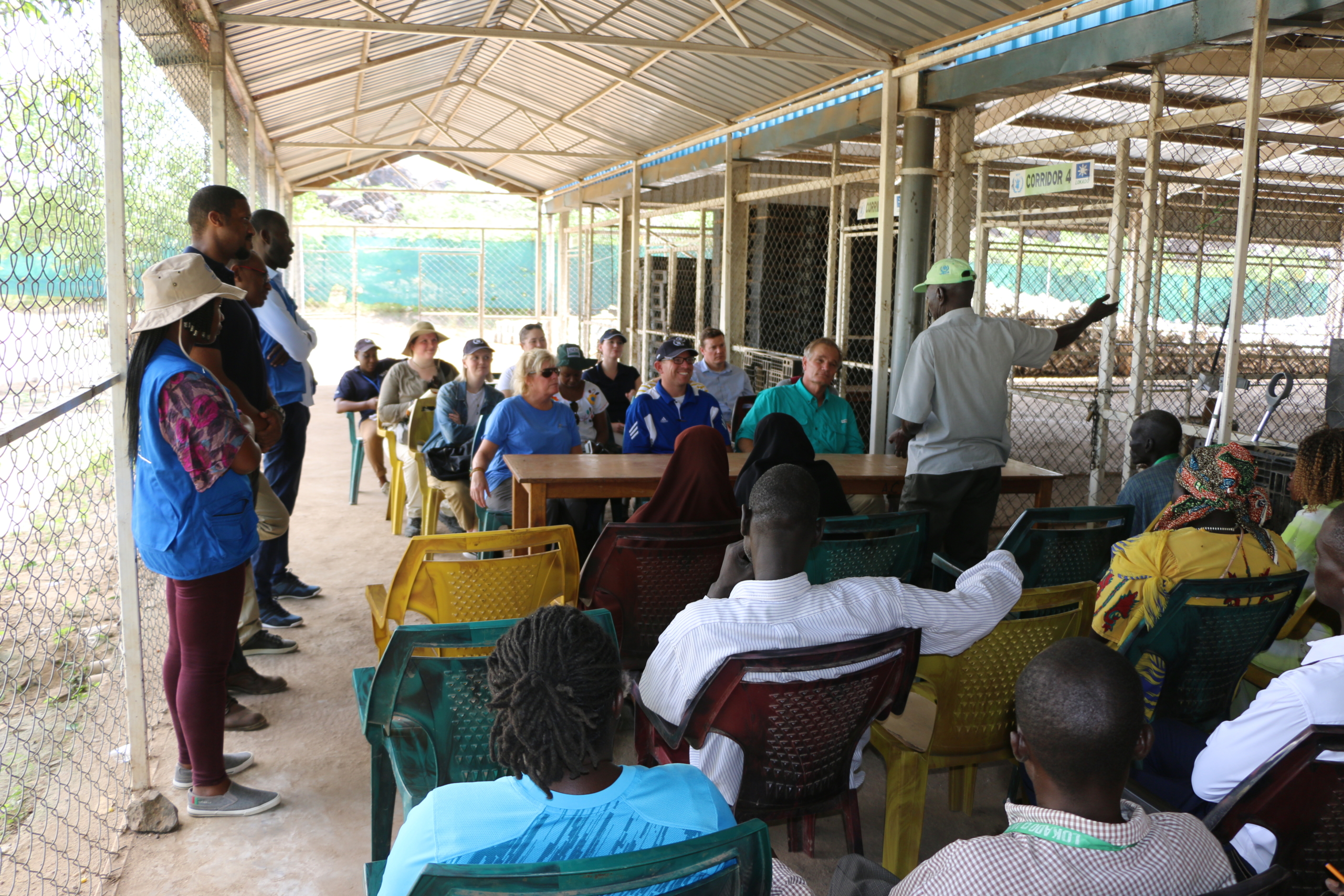
The team meets with the refugee-led Food Distribution Committee. The Chairman, Nelson, is standing and giving an overview of their system.
While the emergency feeding programs the team observed in Kenya are vital, seeing some of USDA’s agricultural development programming completed the full picture of food assistance work that utilizes U.S. commodities. For this, the team traveled to Tanzania and observed a Food for Progress project run by Small Enterprise Assistance Funds (SEAF) and funded through the monetization of wheat. They also observed U.S. Grain Council’s successful Food for Progress project that works to support poultry farms and feed mills in country. The team members met with the mill that purchased the monetized wheat and talked to the bakery that used some of the flour. Food for Progress is unique because while funding agricultural development work, it also supports local industry and builds commercial capacity.
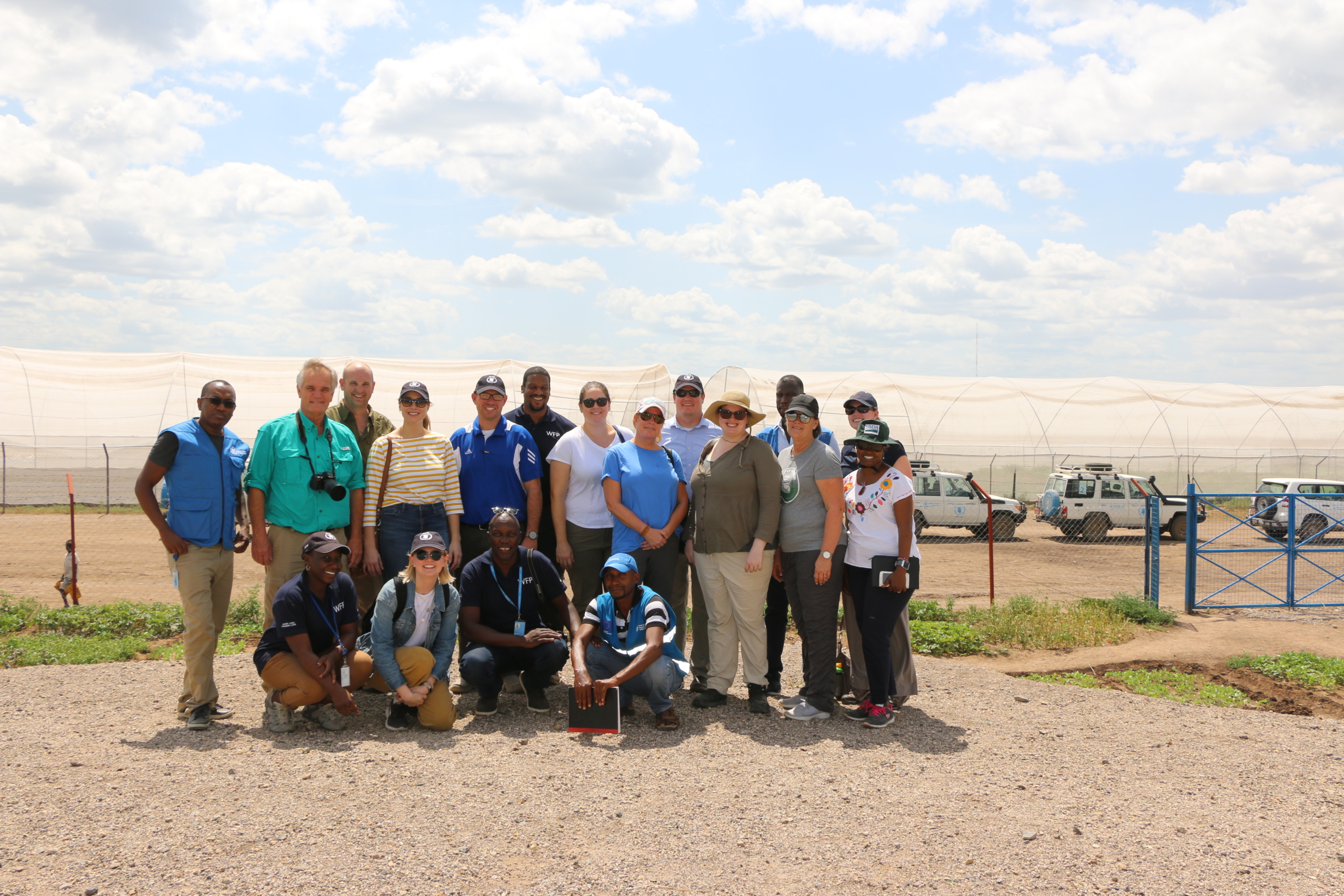
The team visiting a greenhouse project that allows refugees to grow their own food on irrigated land.
The U.S. agricultural industry and farm families continue to support international food assistance work. Trips like this allow our farmers to see the programs up close and in action, instead of just hearing about them in conference rooms and at board meetings. By gaining this practical experience, they are better able to spread the news about the effectiveness and value of the programs and be active partners in ensuring that these programs continue their good work long into the future.
Header Photo Caption: The team with the refugees on the Food Distribution Committee in front of a feeding center.

